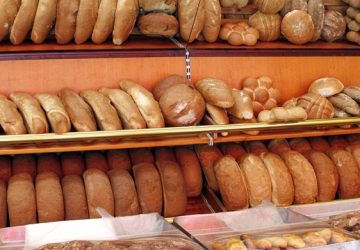These professions drank four or five cups a day, survey found

Found 85 per cent of professionals drank three or more cups a day Almost 70 per cent said working ability would be affected without coffee
It is the aromatic pick-me-up that millions of us rely on to get going in the morning.
But some professions love coffee more than others, a new survey has found.
Journalists, teachers, police officers, plumbers and trade workers are the professions that drink the most coffee, the report claims.
They were found to sink four to five or more cups of the brown stuff every day.
The list of the top ten professions for coffee drinking continued with the nurses and medical staff, company executives and telesales workers who drink, on average, three to four cups a day.
They were followed by IT technical support and retail staff, who were found to be knocking back two to three cups a day.
Drivers were the last on the list, sinking one to two cups daily.
Experts are fiercely divided on whether drinking coffee is good or bad for your health.
Pressat, a UK-based press distribution company, surveyed 10,000 professionals and found 85 per cent said they drink at least three cups of coffee a day.
Nearly 70 per cent admitted their working ability would be affected without a daily mug of coffee and 71 per cent of respondents said they drank coffee primarily for the caffeine hit over the taste or the aroma.
According to NHS Choices, drinking more than four cups of coffee a day may increase your blood pressure, and can lead to dehydration if it’s your only source of fluid.
Previous studies have also linked higher caffeine intake with diabetes, coronary heart disease and stroke.
However other research has found that drinking moderate amounts of coffee (around four cups a day) reduced the risk of heart failure, possibly because of the antioxidants – compounds that work to lower inflammation in the body – that they contain.
Other reports have suggested the familiar buzz doesn’t so much as give us a lift, but fights the caffeine withdrawal symptoms – fatigue, mental fogginess and a dull headache – that have kicked in since our last cup.

Indeed, experts suggest that this morning ritual is actually a sign of mass drug dependency.
‘People who consume caffeine regularly will become dependent on it – if you take caffeine away from them, they will function below par,’ says Peter Rogers, professor of biological psychology at Bristol University and a leading expert on caffeine.
‘They just don’t function normally without the drug on board. If it’s your first tea or coffee of the day, it gets you back to normal, but beyond that you don’t get much more of a kick.’
Professor Rogers has studied coffee and its effects for more than 20 years and, as a result, he and other members of his team have given up caffeine.
‘On balance, caffeine is not particularly helpful. It triggers withdrawal and increases your blood pressure, which is not a good thing,’ he says.
On average the survey found that men drink more coffee than women, but only slightly more at 5 per cent.
The survey, carried out between 1 July and 17 August 2014 included those employed full-time, freelancers, business owners and self-employed aged. All the participants were aged 18 and over.
TEN TOP PROFESSIONS FOR COFFEE DRINKING
1. Journalists and media staff
2. Police officers
3. Teachers
4. Plumbers and trade workers
5. Nurses and medical staff
6. Company executives
7. Telesales
8. IT technical support
9. Retail staff
10. Drivers




